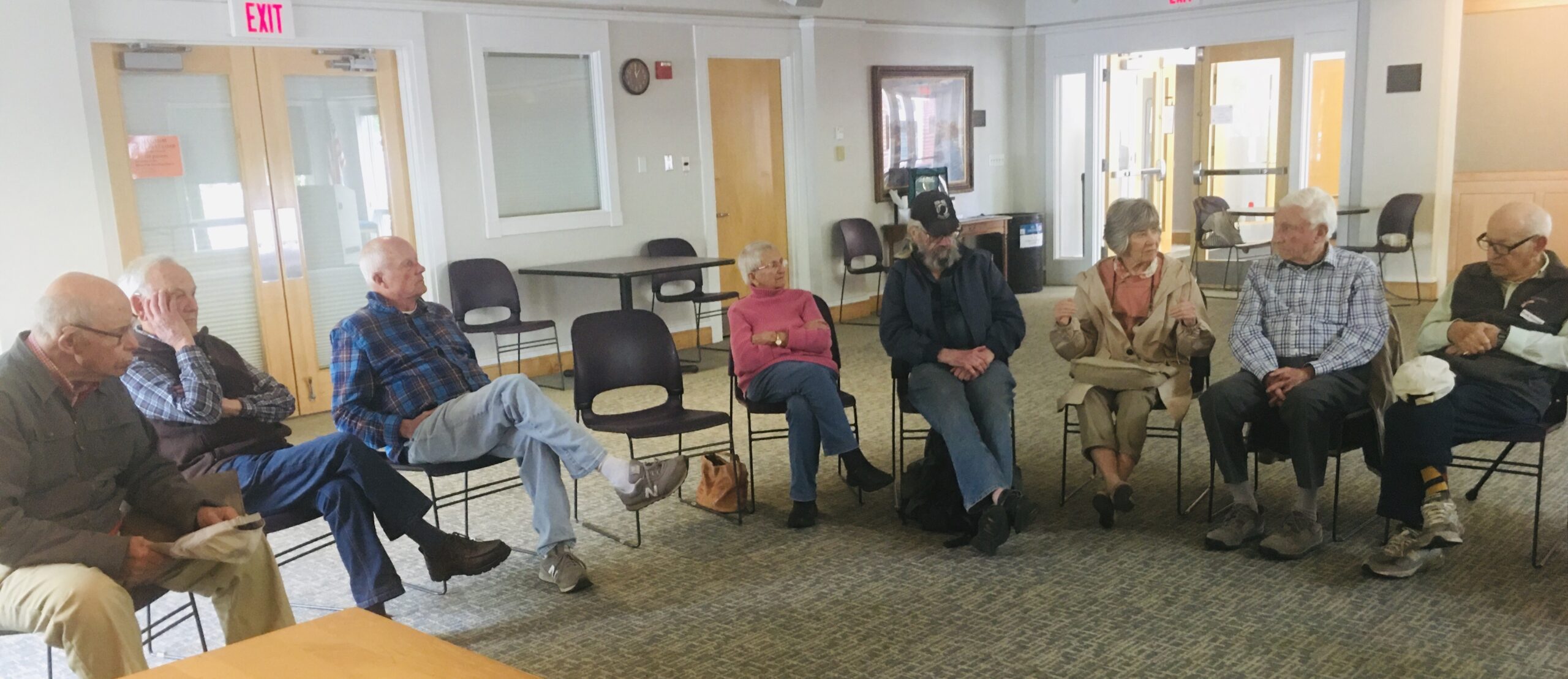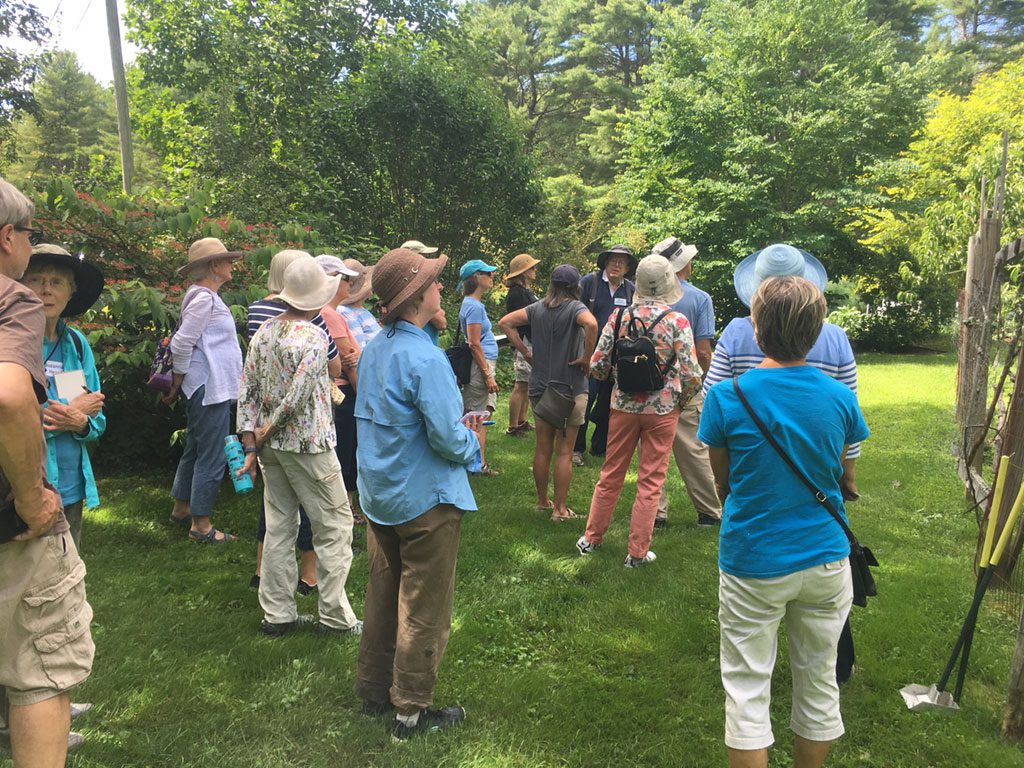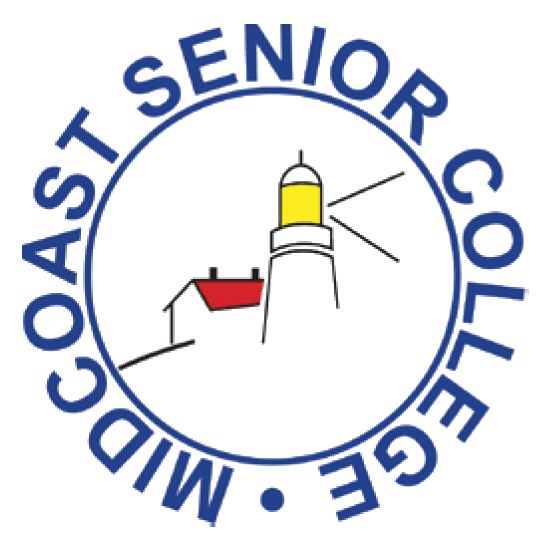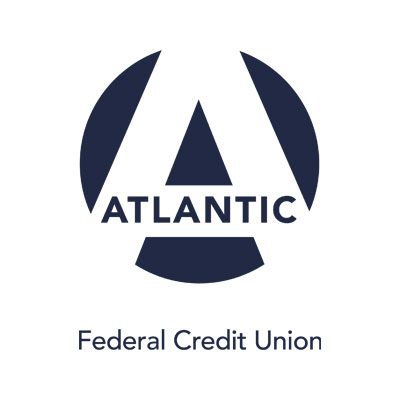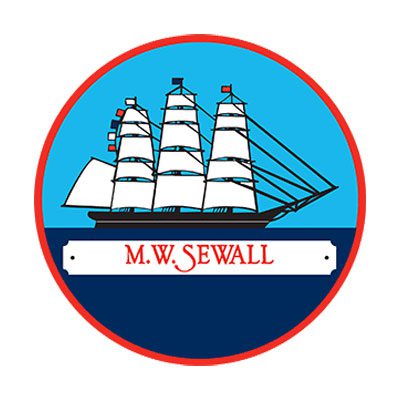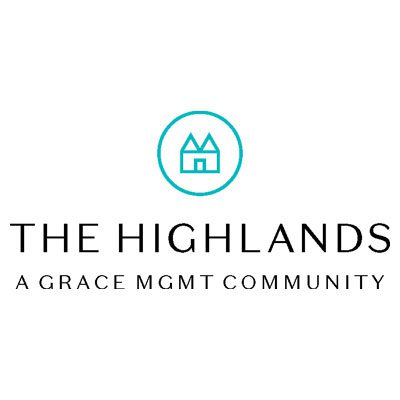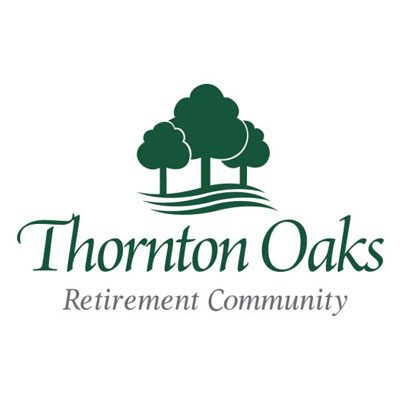
What is Midcoast Senior College?
Midcoast Senior College (MSC) is a non-profit, 501c3. Our mission is to provide intellectually stimulating learning opportunities for persons 50 years of age and older. No college credit is conferred. When you take a course at MSC, learning is for personal fulfillment and enrichment. Our courses are taught by experts and faculty members in their field.
We offer a range of courses in the fall and spring on-line using Zoom, in-person, and also a hybrid of on Zoom and in-person. Consult our brochure and website for how and where a course will meet. The Fall and Spring terms are offered in two sections (Section I and Section II). Courses are 4- to 8- weeks in length.
During the winter period, we will offer an Intersession comprised of other unique events such as workshops, recordings, pop-up events, and more.
In addition, MSC presents other opportunities for learning and engagement including our Summer and Winter Wisdom series, free lectures in June and in January. We also have a writing club, and a book discussion group, all of which are free to MSC members.
Frequently Asked Questions
About Midcoast Senior College
What is Midcoast Senior College (hereafter as MSC)?
We are a nonprofit educational organization that offers not-for-credit classes for older adults. Our mailing address is 18 Middle Street, Suite 2, Brunswick, ME 04011. We are one of seventeen senior colleges in Maine.
What is the purpose of MSC?
Our mission statement is to provide learning opportunities for people 50 years and older to continue lifelong learning.
How do I contact MSC?
Our mailing address is 18 Middle St., Suite 2, Brunswick, ME, 04011. Tel: (207) 725-4900. To reach us, please call 207-725-4900 or email us.
How do I learn about classes and activities?
Send us an e-mail (mscoffice@midcoastseniorcollege.org) with your name and address. Or, fill out the handy mailing list form on our home page. You can also call us (725-4900) with your information. Once on the mailing list, you will receive advance information about course offerings, lecture series, public programs, and special events. To participate in classes you must be a current member.
Membership
How do I become a member of MSC?
The $35 annual membership fee is paid anytime during the MSC fiscal year: July 1 through June 30.
Do I have to be a member to participate in MSC?
Membership is required to take a course, participate in a club, and attend certain membership-only special events.
What are the advantages of membership?
MSC members receive these benefits:
- attendance in classes of your choice (note, however, that some courses have limited enrollment)
- enroll in courses at any senior college in Maine.
- social interaction with other students
- participation at the members annual social
- advance notice of special events
- opportunities for volunteering: e.g., serving on a committee and/or on the Board of Directors, assisting with program administration, and more
Senior College Courses
What kind of courses do you offer?
Course offerings are from across the arts and sciences spectrum, with special emphasis on the humanities and social sciences.
Do I have to join Midcoast Senior College in order to take courses?
Yes, you must be a member to take courses. One becomes a member of MSC by paying the annual academic year membership fee of $35. Course fees are additional.
Is there a cost if I want to take a Midcoast Senior College course?
Yes, in addition to the annual $35 membership fee, there is a $60 per class cost.
Are there requirements for taking courses at MSC?
The only requirement for membership is having reached age 50 or older. The spouse or partner of a member may also join and register regardless of age. Our courses welcome all persons 50 years and older, regardless of educational background, race, color, gender, religion, sexual orientation or national or ethnic origin.
Are there any prerequisites for taking courses at MSC?
There are no individual course prerequisites.
Do I have to take any exams?
No, there are no required exams in our courses. However, there may be optional homework assignments in some courses.
How can I learn what courses will be offered each term?
A digital course bulletin is emailed to all on our mailing list in advance of the registration date. Paid members are given a link to the registration page. Information will be posted on our website, also.
Can I get credit for a Midcoast Senior College course?
No; all our courses are not-for-credit offerings, without exams or term papers.
When are Midcoast Senior College courses held and what is their duration?
We offer four, five, six, seven, and eight-week classes in two fall terms (early September to early November) and in two spring terms (early March to mid-June).
How often do classes meet in each course?
Most courses meet for two consecutive hours each week; on-line courses are generally 90 to 120 minutes in length.
Where are Senior College courses held?
We offer on-line classes using Zoom, a small number of in-person classes, and occasionally hybrid courses. Consult the course bulletin for more information.
Who teaches your courses?
Our Instructors are drawn from area residents. While many have had teaching careers on college campuses or at private or public schools, others may be from business, medical professionals, lawyers, artists, and more.
How does one apply to teach a MSC course?
Send us an e-mail (info@midcoastseniorcollege.org) of your interest to teach a course.
Whom do I contact if I have questions about a particular course?
Send us an e-mail (info@midcoastseniorcollege.org), and we’ll forward it to the appropriate person.
What is an online course?
On-line courses are held using Zoom videoconferencing. You do not need to have a Zoom account to take a class. Teachers may provide pre-recorded lectures to supplement the course.
What computer skills do I need to take an online course?
No special computer skills are necessary.
Costs and Registration
What does it cost to take a course?
In addition to the annual membership fee of $35, each course is $60.
Is it easy to register for courses?
Yes, to register online for any course, simply click the “Register” button on the course list page.
How many courses may I register for?
You may register for as many courses as you wish. We will confirm all course registrations.
What happens if too many people try to sign up for a course?
Assignments to classes are made on a first-come, first-served basis. Class size is limited according to the preference of the instructor and capacity of the classroom or venue. Registration for a course is closed when the class limit has been reached. Closed courses are indicated on the course page on this website. When a course is closed, a waitlist is generated; you may put your name on the waitlist by calling the office. If a student withdraws from a filled course, his/her seat is offered to the next person on the waitlist.
What if I think I made a mistake in registering or want to change my registration?
Contact us by email (info@midcoastseniorcollege.org) or telephone the office at 725-4900.
What is the refund policy if I can’t attend a course I registered for, or if I don’t like a course?
If you drop a course prior to the beginning of classes, you will receive a full refund of the course fee. The membership fee is nonrefundable.
If you drop a course after its first class, you will not receive a refund, and the membership fee is nonrefundable.
Is financial aid available?
Limited tuition waivers are available for 2 classes per year (one per term) per person. To apply, send a letter to Midcoast Senior College, Attn: Chair, Admin Committee, 18 Middle St., Suite 2, Brunswick ME 04011. If you prefer, you may e-mail it to us: info@midcoastseniorcollege.org.
Volunteers
Can I volunteer at MSC?
Yes, we have a variety of volunteer opportunities available, including serving on our Board or its various committees, assisting in course registration and other administrative tasks, acting as liaison in classrooms, helping out with lectures, luncheons, and other events. Use skills you already have or develop new ones.
Is there a minimum number of hours for a volunteer?
No; you can help for a few hours occasionally or devote more time as you become interested and involved in what we do.
How do I become a MSC volunteer?
Call and leave a message (725-4900); e-mail us (info@midcoastseniorcollege.org); or send a letter with your name and contact information (18 Middle St., Suite 2, Brunswick 04011).
Awards and Recognitions
Wheeler-Thompson Founders Award
THE WHEELER-THOMPSON FOUNDERS’ AWARD
To acknowledge in a meaningful way the contributions of the two co-founders of Midcoast Senior College, Nancy Wheeler and Jack Thompson, the Board of Directors established in 2009 the Wheeler/Thompson Founders’ Award. Presented annually at the Spring Luncheon, this award recognized an individual who has supported the spirit and work of Senior College in significant ways.
History of Award: Nominations were solicited each spring from among past and present members/students, faculty, volunteers, and others. The MSC Board made the final selection. (Sitting members of the Board of Directors and current employees are not eligible.) Recipient of the Wheeler/Thompson Founders Award were honored at the annual luncheon, received a framed certificate as well as a $100 gift certificate to a bookstore, and their name was engraved on a permanent plaque displayed at Midcoast Senior College.
Read: Remembering Jack Thompson
Winners of the Wheeler/Thompson Founders’ Award:
The late Bill Brown, beloved teacher for the length and breadth of twenty terms, received the first annual award in 2010.
Read: Remembering Bill Brown
The 2011 winner was Jack Henderson, one of our founding Board members and on-going volunteer and committee member.
In 2012, the award was presented to Dennis Unger. Dennis was recognized for his strong advocacy and support for Senior College as Director of University College, Bath-Brunswick.
Agnes Beale received the award in 2013 after 11 years of dedicated “behind the scene” volunteer service.
The 2014 winner was Dorothy Bell, an active volunteer at MSC since 2002.
In 2015, Nora Bishop was chosen to receive the award for her multiple ongoing volunteer responsibilities. To read her inspiring acceptance speech, click here.
Howard Whitcomb was presented the 2016 award for his staunch support of MSC during the previous 13 years as a prolific instructor, Board member, and member and Chair of the Curriculum Committee for many years.
The 2017 award was presented to Mark Smith, a former Board President who managed the rapid evolution and growth of the College, played a key role in the relocation from Bath to SNHU in Brunswick, helped create the Founders’ Award, and oversaw the transition to independent 501(c)3 status.
Nancy Zugehoer received the award in 2018 in recognition of outstanding service to MSC over many years. Serving as a volunteer in multiple capacities, Nancy was a long-term member of the Board where she also served as Secretary and Creator/Chair of the Technology Committee. She was instrumental in our receiving independent 502(c)3 status — it wouldn’t have happened without her perseverance. Nancy always says Yes when asked to take on a new challenge or task, no matter how difficult. MSC is grateful for her ongoing support and dedication to the organization.
In 2019, Richard DeVito was presented with the award for his generous support in time and technology talents. As the organization grew, Richard put together systems that provided the ability to register, make class lists, keep track of members and mailing lists, and more. Always at a phone call’s notice, he was the go-to person with hard- and soft-ware questions and need. When Richard was not in the air, piloting his small plane, Richard was probably in an MSC class!
The board of trustees recognizes that the MSC community is rich with many helpers, all of whose contributions are received in gratitude. In 2020, MSC ended solicitations of names for the Wheeler-Thompson Founders Award.
The Bill Brown Excellence in Teaching Award
THE BILL BROWN EXCELLENCE IN TEACHING AWARD
To acknowledge in a meaningful way the contributions of MSC faculty members, a special acknowledgement was created in 2018 called “the Bill Brown Award for Teaching Excellence.”
History of Award: Nominations were solicited each at the conclusion of each term from students. The MSC Board made the final selection. (Sitting members of the Board of Directors and current employees were not eligible.) The recipient of the Award was honored at the annual luncheon, received a framed certificate as well as a $100 gift certificate to a bookstore, and their name was engraved on a permanent plaque displayed at Midcoast Senior College.
Winners of the Award:
2018: Barbara Snapp and John Beaven
2019: Ann Kimmage
The board of trustees recognizes that the MSC community is rich with many talented and dedicated teachers, all of whose contributions are received in gratitude. In 2020, MSC ended solicitations of names for the Bill Brown Award for Teaching Excellence.
Quick Links
Board of Directors
Officers 2023/2024
- Freda Bernotavicz
- Leona Dufour
- Jaki Ellis
- Susan Goran
- Kevin Hart
- Bruce Hauptli
- Janet Kehl
- Jay Kuder
- M. Kelly Matzen
- Craig Snapp
- William VanderWolk
- David Vogt
- Karen Williams
- George Young
Executive Committee
- President: Jay Kuder
- Vice President:
- Treasurer: Kevin Hart
- Secretary: Leona Dufour
Meet Our Board of Directors
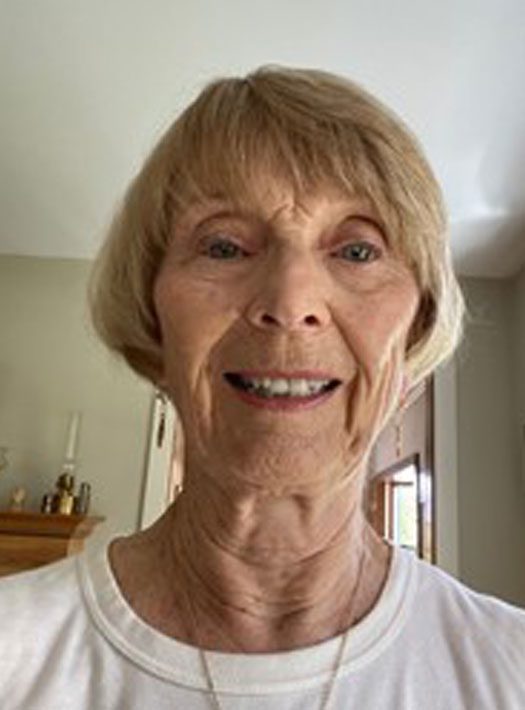
Freda Bernotavicz
Freda moved to Maine in 1974 from Washington D.C. looking for a healthy place to live and raise a family. With a graduate degree in Instructional Communications, she worked at University of Southern Maine until her retirement in 2017. At the Muskie School of Public Service, she was Director of the Institute for Public Sector Innovation, Adjunct Faculty and Team Leader of a national leadership and workforce development institute using remote technology to provide continuing education programs.
She served on the Maine Governor’s Children’s Cabinet, was Board Member and Chair of the Standards Committee of the National Staff Development and Training Association, and has also served on the board of local non-profits.
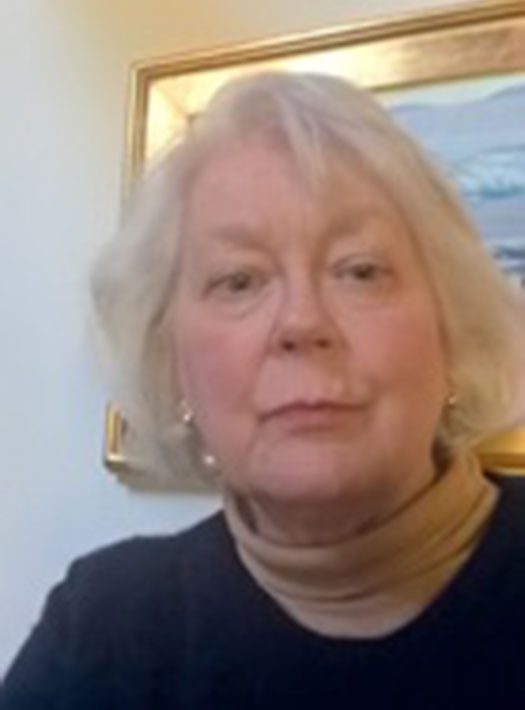
Leona Dufour
Leona retired from teaching high school English in upstate New York. She and her husband soon moved to Georgetown after having fallen in love with mid-coast Maine during numerous summer vacations. She has been taking courses at Midcoast Senior College nearly ever semester for the past fourteen years and has also partnered in teaching four courses. Last spring she did a zoom lecture.
In addition to finishing a memoir, she has been keeping a COVID diary for this past year. So far it numbers nearly 70,000 words. She hopes her granddaughter might be interested in it.
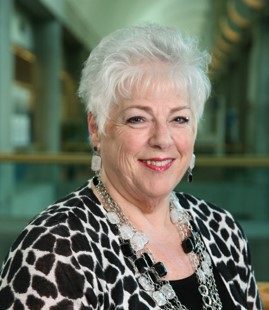
Susan Goran
Susan F. Goran has been privileged to practice in a variety of nursing roles in various ICUs throughout Maine and New England for many years. Retiring from a full-time clinical position 4 years ago, she is currently enjoying an adjunct faculty position teaching Leadership in the UNE School of Nursing & Population Health on the Portland campus. Susan attained her initial nursing diploma at the NE Baptist Hospital School of Nursing in Boston and later received her undergraduate and graduate degrees in nursing from University of Southern Maine in Portland. Very active in a variety of professional nursing organizations, Susan served on the Board of Directors for the American Association of Critical Care Nurses from 1993-96 providing her opportunities to present on critical care topics including leadership for regional, national, and international audiences. She has contributed to the professional nursing literature with peer-reviewed articles and book chapters and recently published her first textbook, ‘Telemedicine: Care Beyond Touch’ which is helping current healthcare providers learn about the use of telehealth/telemedicine to enhance patient care. Passionate about continuous learning, Susan has both attended classes at Midcoast Senior College as a participant and has offered her medical and nursing knowledge by teaching a course on advance directives entitled Final Gifts. Susan lives with her husband of 35 years, John, in Freeport and they enjoy following the sun during the winter months.
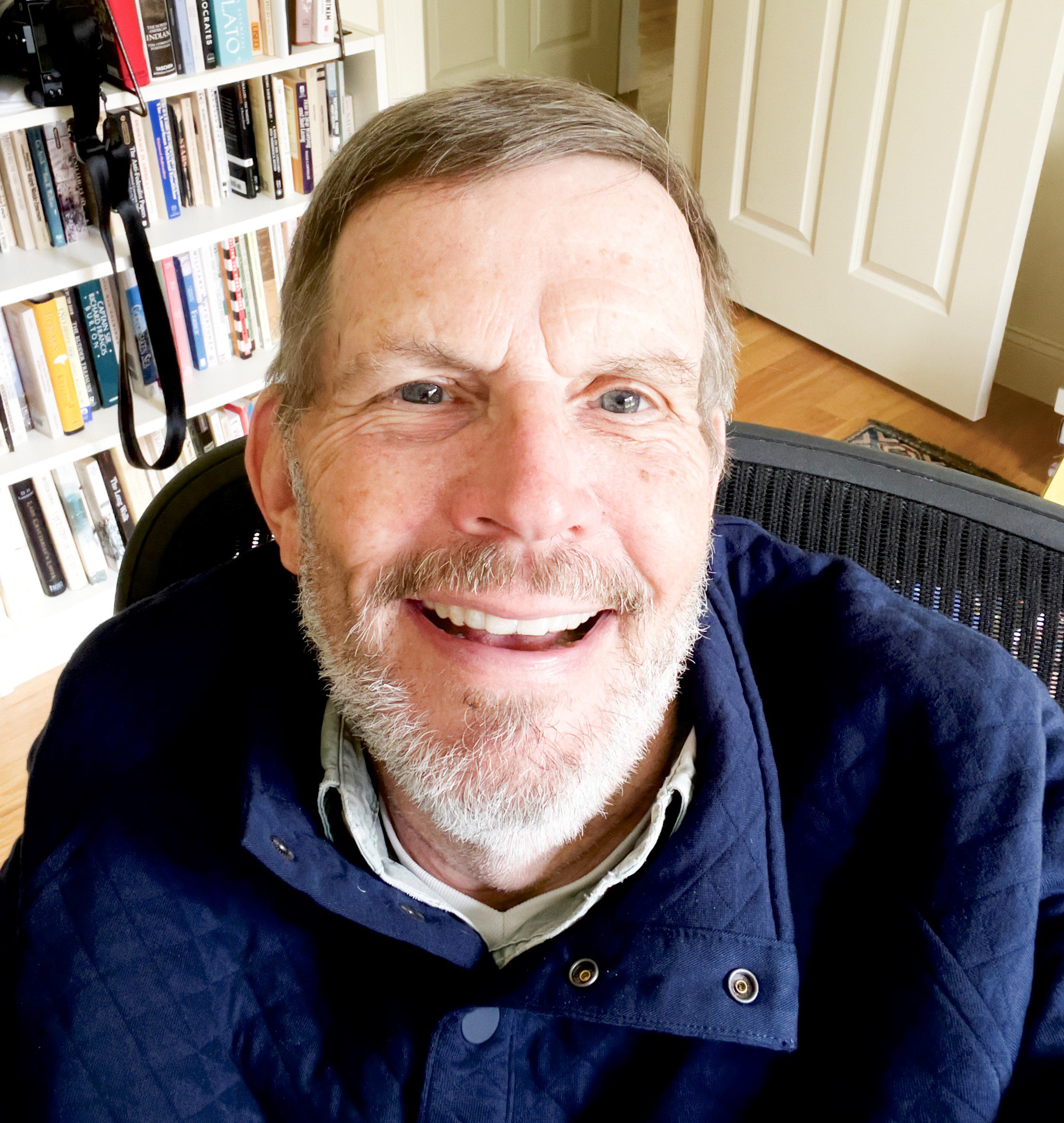
Kevin Hart
Kevin Hart has been a resident of Brunswick since 2009. Prior to moving to Maine, he taught health law and health policy at the University of Rochester, in New York State. He has been a practicing lawyer, a book editor, and a newsletter journalist in Washington, D.C., where he covered the U.S. Supreme Court. He is currently on the Board of Family Focus, and served on the board of the Friends of Curtis Library. He is actively involved in First Parish Church in Brunswick, where he is presently a member of the Church Council.
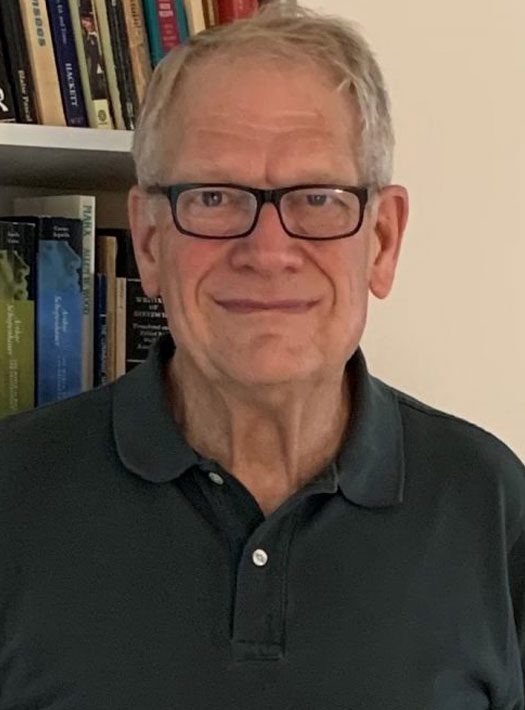
Bruce Hauptli
Bruce is a life-long educator who taught philosophy for forty years. He earned a BA in mathematics from Lawrence University in Appleton, WI; and a MA and PhD in philosophy from Washington University in St. Louis, MO.
He and his wife, Laurie, retired to Bath in 2015, and he has both taken and taught MSC courses.
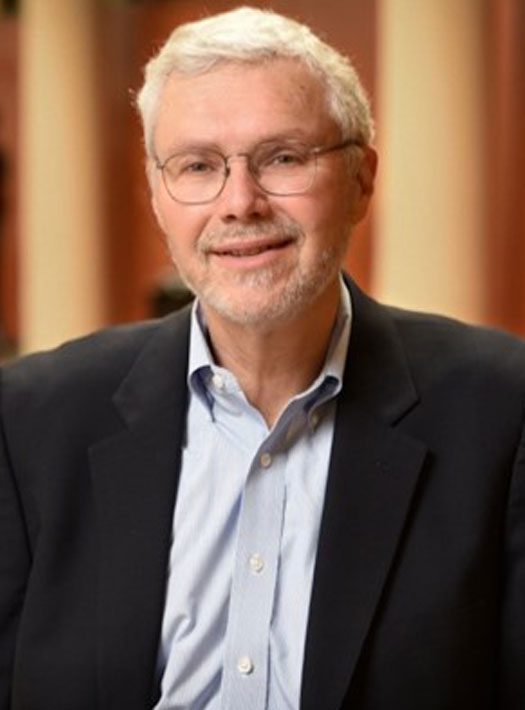
Jay Kuder
Jay is the author of three professional books and numerous professional papers.
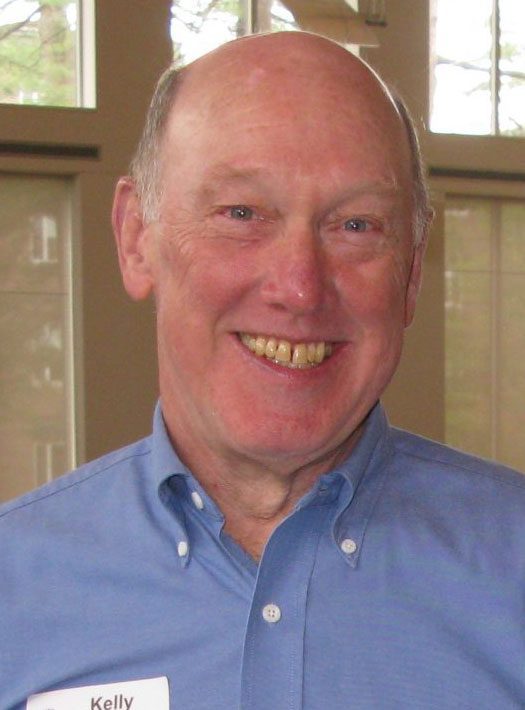
M. Kelly Matzen
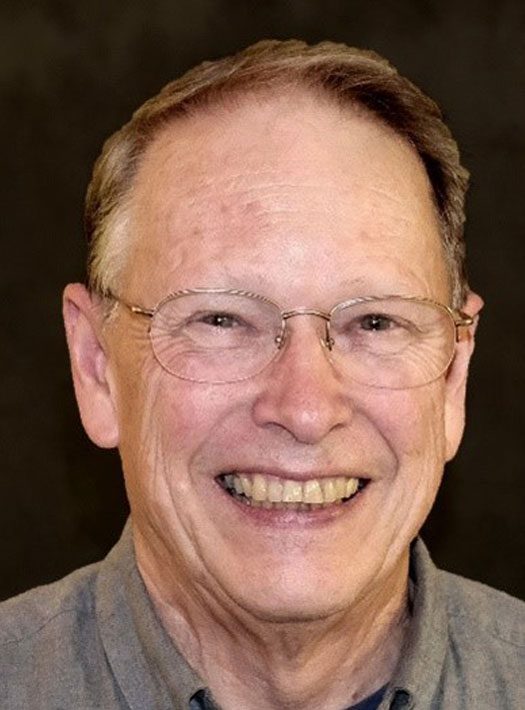
Craig Snapp
An enthusiasm for science and technology led Craig to a PhD in Applied Physics from Cornell University. A 30-year Silicon Valley career followed, doing research, product development and management in the field of wireless semiconductor devices. Retiring to Brunswick in 2003 allowed him to spend more time in the great Maine outdoors, become an avid photographer and volunteer for a number of land conservation non-profits including being on the board of the Downeast Coastal Conservancy. He has most recently become active with the local Citizens’ Climate Lobby chapter.
Craig has enjoyed taking a variety of Midcoast Senior College courses and has taught one on “Exploring Your World and Beyond with Google Earth.”
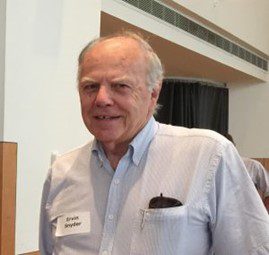
Erv Snyder
Erv has been a resident of Brunswick since 1975. He was a lawyer with a general practice in Wiscasset (1975 – 2012). He spent 13 years on Brunswick School Board, 4 years on Brunswick Town Council and just termed out on the Mid Coast/Parkview Hospital Board of Directors. Having served on many public building committees in Brunswick, Erv was an active member of many committees of the First Parish UCC Church in Brunswick.
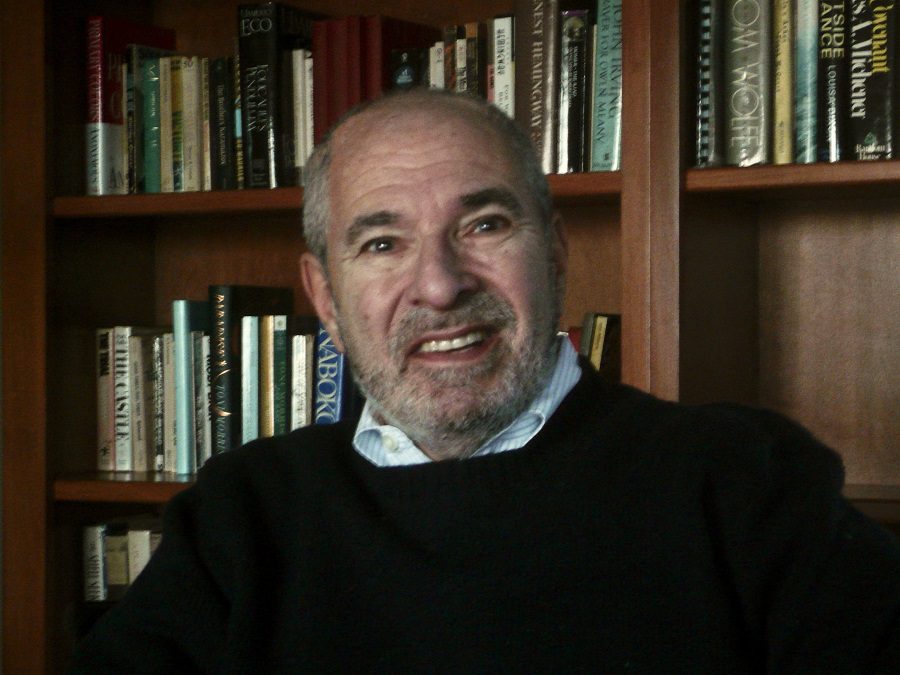
Frank Strasburger
An Episcopal priest, Frank Strasburger has devoted most of his career to campus ministry and was the Episcopal chaplain at Princeton from 1986 to 1997. He left Princeton to become president of Medical Education for South African Blacks, an organization that began during Apartheid and helped radically increase the number of black health care professionals in South Africa. In 1999, as he was returning to full-time ministry, he became founding president of Princeton in Africa, an international service fellowship organization providing outstanding recent college graduates unique opportunities to serve in developing nations all over Africa. He was also a founding board member and later board president of Healthy Learners in Zambia. Locally, Frank has served on the Curtis Library board, the Kieve-Wavus advisory board, the UN Association board, the Tedford Housing Campaign Committee, and the steering committee of both Obama presidential campaigns, founded and facilitated a group of Bowdoin students who met weekly to talk about healthy masculinity, and recently taught a course on Job at Mid Coast Senior College. He is the author of Growing Up: Limiting. Adolescence in a World Desperate for Adults. Father of three and grandfather of four, Frank is now retired and living with his wife, Carrie, in Highland Green.
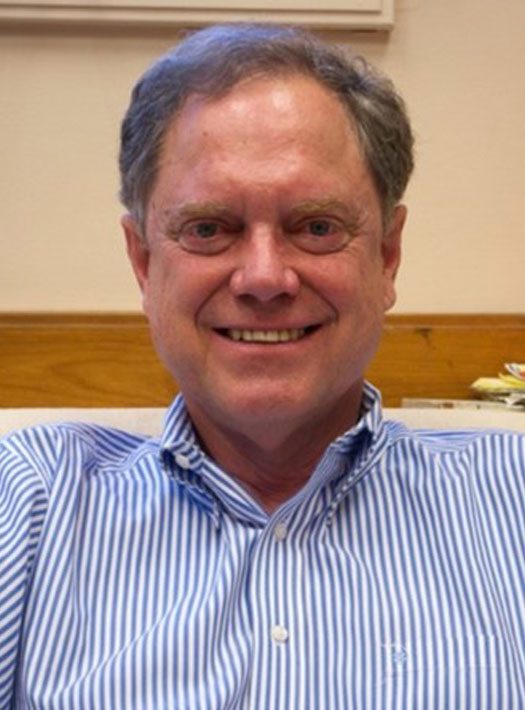
Bill VanderWolk
A French teacher during his 40-year career, Bill spent the last 29 years of it at Bowdoin, retiring in 2013. He has taught courses at MSC on French literature in translation and is Co-Chair of the Curriculum Committee.
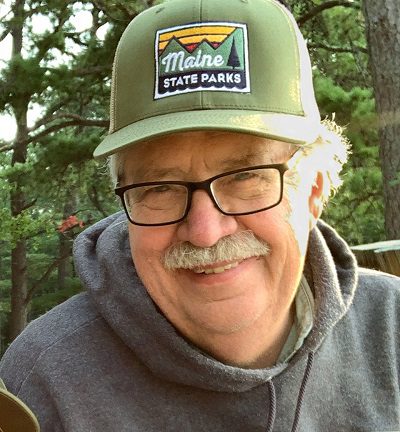
David Vogt
David Vogt received his BA in Physics from Colby College and MBA at Harvard Business School. He spent 12 years at Education Development Center, a MIT spin-off including one year teaching the materials developed in a public high school, worked in nuclear radiation software modeling, and served in the U.S. Army. He has published papers, taught undergraduate filmmaking, worked on the technical and management side in software and hardware systems with a robotics focus. Other work included a Substance Abuse Group Volunteer Facilitator at SMART Recovery, a non-profit international organization. He is retired, enjoying the proximity to his family and grandchildren in Maine.
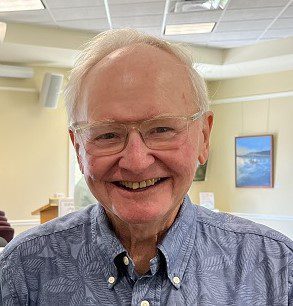
George Young
George graduated Phi Beta Kappa in English from Duke, and as a Woodrow Wilson Scholar earned a Ph.D. in Slavic Languages and Literatures at Yale. He taught Russian language and literature and general humanities at Grinnell, Dartmouth, and the University of New England. In retirement, both at OLLI in Portland and MSC in Brunswick, as both student and teacher, he has shared his long standing love of the great books, especially in Russian and ancient classical literature. As a scholar he has written extensively on Russian literature and religious philosophy of the late Tsarist period. His most recent book, The Russian Cosmists, is regarded as the standard work on the subject in English. In a long break from academia, he worked for twenty some years as a fine arts dealer and auctioneer, specializing in nineteenth and early twentieth century American and European paintings. He and his wife now enjoy slow hiking, nine hole golf, children, grandchildren, and the many rich but affordable opportunities for cultural life in Brunswick.
Board Responsibilities
What Does the MSC Board of Directors Do?
by James W. Wilkes, President, Midcoast Senior College
November 2018
The Midcoast Senior College (MSC) board of directors believes that strong board leadership is fundamental to a strong and effective college. When asked to explain what the MSC board does, I turned to a book I have used as my bible in the nonprofit world since 1988. Richard Ingram’s Ten Basic Responsibilities of Nonprofit Boards is now in its third edition and published by BoardSource.
The Midcoast Senior College board of directors:
1. Is responsible for ensuring that MSC’s mission is clearly stated and advocates for it
- The mission statement serves to guide board and staff decisions about programs, volunteer initiatives, and priorities among competing demands for scarce resources
2. Selects the executive director and determines what the executive director does
- Board of directors sets policy, plans, and strategy
- Executive director executes policy, completes plans, and implements strategy
3. Supports and evaluates the executive director
- The board provides personal and organizational support for the executive director’s leadership
- At least annually, assesses the executive director’s performance
4. Ensures effective planning
- All programs support and promote the mission and goals of MSC
5. Monitors and strengthens programs and services
- Determines which programs are consistent with mission, and monitors their effectiveness
6. Ensures adequate financial resources
- Assists in developing the annual budget, and ensures proper financial controls are in place
7. Protects assets and provides proper financial oversight
- Protects fiduciary responsibilities (public trust)
- Safeguards assets and holds them in trust
8. Recruits competent members to the board who bring specific, needed skills
- Articulates prerequisites for board positions
- Orients new board members
- Assigns members to chair committees in administrative, finance, development, other areas
- Periodically evaluates its own performance
9. Ensures legal and ethical integrity, and maintains accountability
- Adheres to legal standards and ethical norms, including: compliance, transparency, accountability
10. Enhances MSC’s public standing
- Serves as a link between the college, its members, and the general public
- Acts as MSC ambassador and advocates for the college
Team

Donna Marshall, Executive Director
mscoffice@midcoastseniorcollege.org
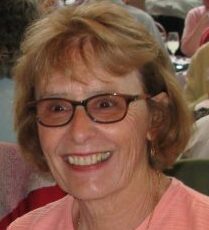
Sonia St. Pierre, Bookkeeper
info@midcoastseniorcollege.org
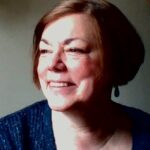
Sue Kingsland, Associate Director
sue@midcoastseniorcollege.org
Committees
Committee Chairs
- Community Outreach: Susan Goran
- Curriculum: Victor Papacosma*, Janet Kehl, William VanderWolk, John Haile*
- Development: Jay Kuder
- Executive: Jay Kuder
- Events: Freda Bernotavicz
- Finance: Kevin Hart
- Nominating: Doug Bates*
- Summer Wisdom: M. Kelly Matzen, Morton Achter*
- Winter Wisdom: Reg Elwell*, Stuart Gillespie*, Craig Snapp, David Vogt
Newsletter
Donna Marshall, Editor of The Midcoast Inquirer
Webmaster
Volunteer Coordinator
Donna Marshall**
* Not a Board member
**Serves ex officio as a non-voting member on the Board of Directors
Faculty
Members of our faculty represent a wide variety of backgrounds. While many have had careers on college campuses or at private or public schools, others have had careers in industry, the arts, and active engagement in different disciplines. Each teacher brings new perspectives and a readiness to engage constructively with senior learners.
We are proud to highlight members of our faculty who have taught for us in the past few academic years. The following brief introductions are representative of the breadth and background of all our instructors.
Meet Our Faculty
Morton Achter
Educated in musicology, music theory, piano, and theater history at the University of Michigan (BM, MM, PhD), Achter’s extensive academic tenure was at Otterbein University in Ohio, where he served for 25 years as Chair of the Department of Music and taught theory, composition, music history, music appreciation, opera and musical theater. He has also taught at Indiana University-Purdue University Fort Wayne, the University of Michigan, Boston University, and the Boston Conservatory. Achter has been responsible for the stage direction, music direction, and choreography for nearly 80 operas, musicals, and plays at the professional, college, and community levels. Since retirement in 2002 he has been involved with many theater productions in Damariscotta and Bath, and has given pre-opera talks for the Met HD broadcasts at Damariscotta’s Lincoln Theater.
Doug Bennett
Jayne Boisvert
Raymond Boisvert
Susan Bowditch
Bob Bunselmeyer
Jim Bunting
Jim Bunting is a retired lawyer and American history instructor. He holds a BA (Summa Cum Laude, Phi Beta Kappa) from Rutgers University, a JD from the University of Michigan, and a MALS degree specializing in American history, from Duke University. He has taught at Western Reserve Academy, Ohio where he was chair of the History Department and taught Advanced Placement US History and designed and implemented an elective course for seniors on Constitutional Law
Scott Burnham
Scott Burnhamis a graduate of NYU Law School. As a lawyer he practiced intellectual property law and taught the subject as a law professor for 35 years.
John Burr
John Burr is a retired journalist who has reported and served as editor-in-chief for the Jacksonville Business Journal and worked as a reporter and senior editor for the Florida Times-Union. For this course, he will draw on his long-time interest in climate issues and his experience as an environmental reporter. He has taught a continuing
education climate class at the University of North Florida and has given a presentation at the Coastal Maine Botanical Garden.
Marlis Cambon
Michael Chaney
Edward Cherian
Fred Cichocki
Hugh Clark
Hugh Clark retired in 2017 after 35 years on the faculty of Ursinus College with a teaching and scholarship focus on Chinese history and culture.
Ross Crolius
Joseph Coté
Norm Curthoys
Dave Cutler
Dave Cutler is a retired U.S. Army Field Artillery Colonel, who served during the Cold War in cannon and rocket field artillery units in Korea, Germany, Fort Sill, Oklahoma, and Fort Bragg, North Carolina. After retirement from the Army, he was a federal employee in the Office of the Under Secretary of Defense for Personnel and Readiness in the Pentagon. He holds a master’s degree in International affairs and is a graduate of the U.S. Marine Corps War College.
Susan Danly
Susan Danly is an independent curator of American art with over 30 years of experience in museums across the country. Most recently she has focused on the history of Maine art and is currently a trustee of the Monhegan Museum of Art and History and consulting curator for an exhibition of Fitzgerald’s work now on view at the Monterey Museum in California.
Leona Dufour
Leona Dufour lives in Georgetown and holds a B.A. in English from Wilkes University and a M.A. in English from the University of Maryland. She taught honors and advanced placement in English at Carmel High School in Carmel, New York.
Charisse Gendron
Christos Gianopoulus
Christos Gianopoulus is an adjunct professor in philosophy at the University of Maine in Augusta. Fore more than 35 years he has taught courses in history, philosophy, and world religions at other branches of the University System and Maine Community Colleges. He earned a B.A. at Bowdoin College and an M.A. Political Science at American University and MPA, Public Administration, Syracuse University.
Stuart Gillespie
Stuart Gillespie retired from a 30-year career as Director of Choral Ensembles and chair of Fine Arts at Naugatuck Valley Community College in. He began his career in music as a baritone singer with the United States 7th Army Chorus – Europe. He was the choral master of the Manchester Symphony Chorale from 1972 to 1984 and a singer of historical sea music at the Mystic Seaport Museum in Mystic, CT. In 1998 he received the American Choral Director Association’s “Outstanding Choral Director of Connecticut” award. He is a published composer and when not messing around with old boats, old cars or old music, he takes delight in teaching the 50 voice Midcoast Senior College Singers.
Susan F. Goran
Peter Griffin
John Hail
John Haile (B.A. Bates, M.A. Middlebury) recently retired from a career as an English teacher and administrator at Avon Old Farms School in Connecticut, Western Reserve Academy in Ohio, and Brooks School in Massachusetts.
Bruce Hauptli
Paul Kalkstein
Janet Kehl
Ann Kimmage
Dennis Kimmage
Jay Kuder
Jay Kuder has been a professor of special education at Rowan University (NJ) for over 35 years and the founder and former coordinator of the autism certificate program at the university. He has published Teaching Students with Language and Communication Disorders and numerous research articles. His current research and writing focus on college-age students with autism.
Gary Lawless
Ed Lovely
Susan Mikesell
Richard S. Neiman
Victor Papacosma
Steve Piker
Terry Porter
Dan Possumato
Stephanie Rayner
Martin Samelson
Niles Schore
Gardner Shaw
Jay Sherwin
Barbara Snapp
Craig Snapp
David Spurr
Geneva and in the school of architecture at the University of Iceland.
Donald Stein
Donald Stein is professor emeritus at Emory University. He has taught and done research in the field of recovery of function from brain damage for five decades and has written extensively on this topic. He is still involved in the research and development of new, safe and effective treatments for TBI, stroke and brain cancer.
Frank Strasburger
Frank Strasburger has been an Episcopal priest for nearly 45 years, spending much of his vocation in campus ministry. He is active in the community and resides in Topsham.
Sarah Timm
David Treadwell
Bill VanderWolk
Bud Warren
Richard Welsh
Breda White
Born in Ireland, and raised and educated in the UK, Breda has studied, lived, worked, and taught in Spain, Canada, and Bahrain. She has a joint degree in Spanish and Linguistics from the University of Exeter, UK, and a Masters in Spanish Language and Literature from Queen’s University in Kingston, Ontario, Canada. She has taken several art history summer courses with the Courtauld Institute in London. Prior to moving to Maine, she lived in Boston and Simsbury, CT. in 1993, Breda began a 29-year academic career at Portland’s Waynflete School, teaching Spanish, French, and Art History, then moving over to college advising, becoming the schools Associate Director of college counseling. She developed a cycle of six Art History electives, ranging from Mediaeval Architecture to 20th century Modernism. During Covid, she also developed a series of architectural history lectures for Portland’s Victoria Mansion. Breda and her husband, David, share a love of choral singing and sing in the Choral Art Singers and Masterworks choirs, and in Renaissance Voices. Now re-retired, Breda is a VP of the Portland Symphony orchestra, an active volunteer docent at Victoria Mansion in Portland, and an avid cook!
Bob Williams
George Young
Interested in Teaching for MSC?
Interested in teaching a course at Midcoast Senior College? We would love to talk to you about your area of expertise and interest. Please introduce yourself by sending an email to one of our Curriculum Committee Co-Chairs:
Janet Kehl, Co-Chair
Victor Papacosma, Co-Chair
William VanderWolk, Co-Chair
In your email, please provide information about yourself including a CV and teaching experience.
We look forward to hearing from you!
Volunteers
Volunteers are the backbone of Midcoast Senior College (MSC). They assist in many MSC administrative functions, write for our newsletter, help out at events and excursions, and also in the classrooms. Our teachers and board members are also volunteers.
One of the biggest needs is in the classroom–both on-line and in-person. Here a volunteer helps the teacher and supports the class in many ways. We give our classroom volunteers all the tools and training they need to be well prepared. As a class volunteer, you get to take the class for free! It is a rewarding and enjoyable experience. Class co-hosts/liaisons are a close-knit group.
All are welcome to become volunteers, and in most cases, no special skills are required. You can use skills you already have or develop new ones. You can help for a few hours occasionally, or devote more time as you become interested in what we do.
Anyone interested in becoming a volunteer or desiring additional information may contact the office at 207-725-4900, or e-mail us including your name, telephone number, and email address, and we’ll contact you about what you might be interested in doing and to tell you about our needs.
Thank you to all our Volunteers!
Sponsors
Midcoast Senior College is a non-profit organization that relies on the support of its members, donors, and community sponsors. Sponsorship represents a significant portion of our budget. We are grateful to have the ongoing support from our sponsors listed below and welcome new sponsors. Please contact us at mscoffice@midcoastseniorcollege.org with your interest in joining us as a community sponsor. We highlight sponsor logos on our website, in printed materials, and at events.
Thank you to all our sponsors!
Atlantic Federal Credit Union
Bath Savings Institution
Grilljam
Joane Tait at Legacy Properties Sotheby’s International Realty
Just Framing
Maine Pines Racquet & Fitness
MW Sewall
Norway Savings Bank
Now You’re Cooking
Rhumbline Advisers
The Highlands
Thornton Oaks Retirement Community
Our History
Learn About Our History
In 1999, a small group met with David Baty, former director of University College at Bath/Brunswick, for the purpose of establishing an opportunity for life-long learning in the Midcoast area. They were inspired by the vision of Rabbi Harry Sky who had helped create the Portland-based senior college.
Their goal was to create a similar opportunity for seniors in the greater Midcoast area who wished to continue to learn.
Nancy Wheeler and Jack Thompson spearheaded this endeavor with David Baty’s assistance, and a letter went out to the public. The response was overwhelming, and an open house was held. The following spring, March of 2000, six courses were offered.
Currently we offer 25 – 30 courses during both the fall, winter and spring terms, with volunteer faculty and a term enrollment of over 500. Courses range from American studies, art history, fiction and poetry, and architecture, to painting and drawing, computer skills, and music. And much more! Our students are aged 50 and above. There are no exams, no grades, and no credit hours given.
We invite you to read a detailed historical account of the history of Midcoast Senior College, authored by Robert C. Williams with research assistance from Nora Bishop and editorial support from Jack Henderson in honor of MSC’s 20th anniversary in 2020: MSC The First 20 Years.
Learn About Our Organization
One of seventeen autonomous, self-governing senior colleges in Maine, we serve the area from Damariscotta to Freeport and inland towards Augusta.
During our first twelve years, we were a program of University College at Bath/Brunswick, part of the University of Maine System. In May 2012, we became a 501(c)(3) nonprofit charitable organization, retaining close ties with University College until our move in June 2014 to the Brunswick Center of Southern New Hampshire University (SNHU). In the fall of 2017, SNHU announced the closure of its Brunswick Center in 2018 at which time MSC leased space at 29 Burbank Avenue in Brunswick. We now have office space at 18 Middle Street, Suite 2, Brunswick, ME 04011. Classes are held at various locations in the community and on-line.
MSC is administered by a Board of Directors of 15 members that meets monthly for planning and policy decisions. The Board has committees and subcommittees for administration, curriculum, development & marketing, finance, special events, long-term planning, and volunteers. Bylaws guide our Board and committees.
Testimonials
What Members are Saying
Get News & Updates
Get the latest Mid Coast Senior College news and updates delivered right to your inbox.
